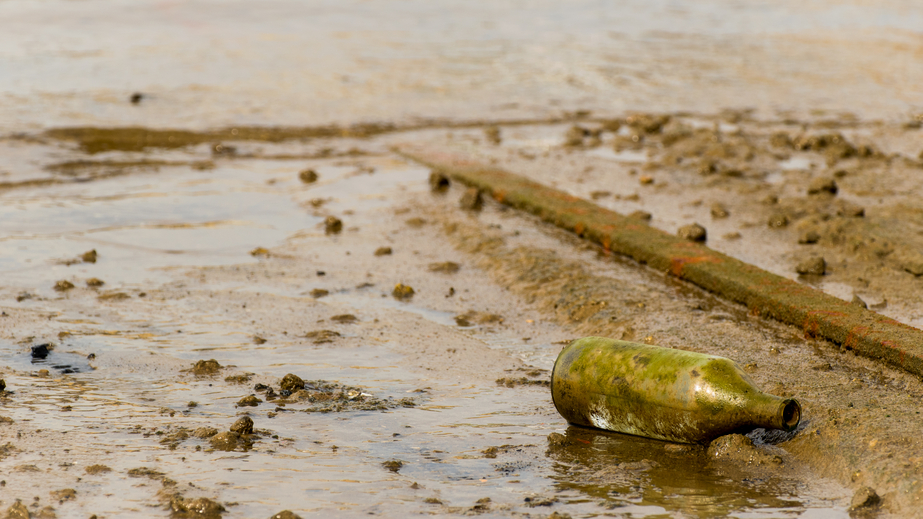Maryland Environmental and Ethics 16 PDH Discount Package 2
Mold Remediation in Schools and Commercial Buildings (C04-049)
Revitalizing Contaminated Lands: Addressing Liability Concerns (C03-061)
Ethics in Professional Practice (LE2-007)

This online engineering PDH course provides an overview of key considerations for developing or enhancing management programs for decentralized wastewater treatment systems.
One in every four households in the United States relies on an individual onsite or small cluster system to treat wastewater. In far too many cases, these systems are installed and largely forgotten – until problems arise. On the other hand, EPA concluded in its 1997 Report to Congress that “adequately managed decentralized wastewater systems are a cost-effective and long-term option for meeting public health and water quality goals, particularly in less densely populated areas.”
The key to achieving effective performance of decentralized sewage treatment systems from the simplest “box and rocks” septic tank and drainfield system to the most complex treatment and dispersal units; is an effective management strategy. This strategy must consider several critical elements such as planning, site conditions, risk factors, system design, and operation and maintenance, all of which comprise a management program.
This 7 PDH online course is applicable to civil, environmental and chemical engineers, sanitarians, and others seeking an understanding of Management of Onsite and Clustered Wastewater Treatment Systems.
This PE continuing education course is intended to provide you with the following specific knowledge and skills:
- Introduction to the management of onsite and clustered wastewater treatment systems
- Relevant of the management guidelines to other water programs
- Description of management models
- How to apply the management models
Upon successful completion of the quiz, print your Certificate of Completion instantly. (Note: if you are paying by check or money order, you will be able to print it after we receive your payment.) For your convenience, we will also email it to you. Please note that you can log in to your account at any time to access and print your Certificate of Completion.

This online engineering PDH course presents guidelines for the remediation/clean-up of mold and moisture problems in schools and commercial buildings. These guidelines include measures designed to protect the health of building occupants and remediators. Individuals with little or no experience with mold remediation should be able to use this course to help them make a reasonable judgement as to whether the situation can be handled in-house. It will also help those in charge of maintenance to evaluate an in-house remediation plan submitted by an outside contractor.
Molds can be found almost anywhere. They can grow on virtually any organic substance if moisture and oxygen are present. There are molds that can grow on wood, paper, carpet, foods, and insulation. When excessive moisture accumulates in buildings or on building materials, mold growth will often occur, particularly if the moisture problem remains undiscovered or unaddressed. It is impossible to eliminate all mold and mold spores in the indoor environment. However, mold growth can be controlled indoors by controlling moisture indoors.
When mold growth occurs in buildings, adverse health problems may be reported by some building occupants, particularly those with allergies or respiratory problems. Remediators should avoid exposing themselves and others to mold-laden dusts as they conduct their cleanup activities. Caution should be used to prevent mold and mold spores from being dispersed throughout the air where they can be inhaled by building occupants.
This 4 PDH online course is intended to environmental and facility engineers, building managers, custodians, and others who are involved in the development and implementation of mold prevention and remediation plans.
This PE continuing education course is intended to provide you with the following specific knowledge and skills:
- Understanding mold preventative measures
- Investigating, evaluating, and remediating moisture and mold problems
- The importance of Personal Protective Equipment
- Developing a Mold Remediation Plan
Upon successful completion of the quiz, print your Certificate of Completion instantly. (Note: if you are paying by check or money order, you will be able to print it after we receive your payment.) For your convenience, we will also email it to you. Please note that you can log in to your account at any time to access and print your Certificate of Completion.

This online engineering PDH course discusses the statutory, policy, guidance, and regulatory provisions that may be helpful to parties looking to manage environmental clean-up liability risks associated with the revitalization of contaminated sites. It is designed for use by parties involved in the assessment, clean-up, and revitalization of sites, and provides a basic description of the tools that may be available to address liability concerns.
Revitalizing contaminated lands means providing reuse opportunities of abandoned properties to communities and land owners by cleanup enforcement program. The main objective of the cleanup enforcement program is to ensure prompt site cleanup and the participation of liable parties in performing and paying for cleanups in a manner that ensures protection of human health and the environment.
This 3 PDH online course is applicable environmental, civil, and industrial engineers as well as others interested in learning more about revitalizing contaminated lands.
This PE continuing education course is intended to provide you with the following specific knowledge and skills:
- Learning the enforcement tools to help promote the clean-up and revitalization of contaminated sites
- Understanding the policies available to help promote cleanup and revitalization of contaminated sites
- Knowing how to manage the environmental cleanup liability risks associated with the revitalization of contaminated sites for parties
- Familiarizing with the available tools to address liability concerns
Upon successful completion of the quiz, print your Certificate of Completion instantly. (Note: if you are paying by check or money order, you will be able to print it after we receive your payment.) For your convenience, we will also email it to you. Please note that you can log in to your account at any time to access and print your Certificate of Completion.

In this online engineering PDH course, background on the philosophical models that guide ethical behavior is discussed and then applied to specific situations in engineering codes of ethics. This course is based on the American Society of Mechanical Engineers Professional Practice Curriculum, Volume 8, Section: Engineering Ethics.
Many engineering organizations have drafted codes of ethics to which their members are required to commit. Generally, these codes are quite similar and are based on a few fundamental principles which provide guidance to professional engineers in common situations. Nevertheless, there are many difficult or ambiguous situations in which the best ethical solution is difficult to determine.
This 2 PDH online course is intended primarily for engineers seeking to learn ethical principles and how to apply them to their professional practice.
This PE continuing education course is intended to provide you with the following specific knowledge and skills:
-
Determining ethical behavior using several philosophical models
-
Evaluating a practical situation in terms of a professional code of ethics
-
Identifying situations that represent conflicts of interest and formulate a proper response
-
Applying the standards of professional ethics in technical communication
-
Recognizing environmental impacts of engineering work
-
Considering principles of sustainable development in the performance of professional duties
In this professional engineering CEU course, you need to review "Ethics in Professional Practice" published by the American Society of Mechanical Engineers (ASME). (This course document is reproduced by permission of the ASME (www.asme.org). You may also download from or view this course document on the ASME's website by clicking on Ethics in Professional Practice).
Once you complete your course review, you need to take a multiple-choice quiz consisting of fifteen (15) questions to earn 2 PDH credit. The quiz will be based on this ASME publication.
Upon successful completion of the quiz, print your Certificate of Completion instantly. (Note: if you are paying by check or money order, you will be able to print it after we receive your payment.) For your convenience, we will also email it to you. Please note that you can log in to your account at any time to access and print your Certificate of Completion.